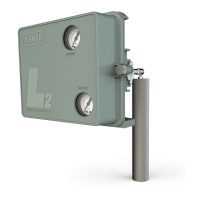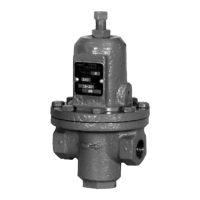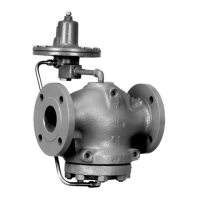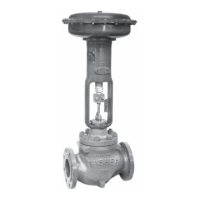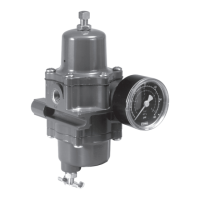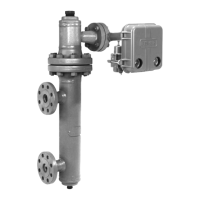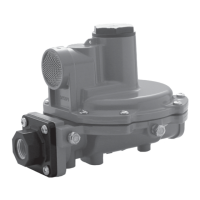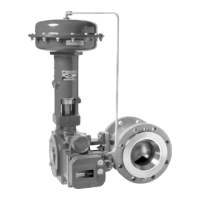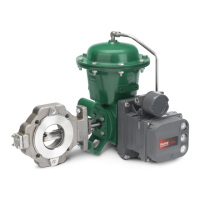4195KA, KB, KC, and KS Controllers
Instruction Manual
Form 5207
April 2007
3-4
Calibration of 4195KA Series
Controllers
WARNING
To avoid personal injury or property
damage resulting from the sudden
release of pressure, do not exceed the
operating limits given in this manual.
General Calibration Instructions
Note
If the controller has the auto/manual
station (suffix letter E), be sure the
controller is in the automatic mode
before performing calibration.
If the prestartup checks, or startup, reveal faulty
controller operation, perform the calibration
described in this section. These instructions are
valid for either shop or field calibration, provided that
open process loop conditions exist. Unless
otherwise noted, key numbers are found in
figure 7-1.
Do not use the gauges supplied with the controller
during calibration. Monitor process pressure, supply
pressure, controller output pressure, and if
applicable, remote set point pressure with external
gauges.
Process Indicator Zero and Span
Calibration
Before starting this procedure:
D Provide a regulated process pressure to the
controller and a means of measurement external to
the controller.
D Provide a means of measuring the controller
output pressure by connecting the controller output
to a pressure gauge (open loop conditions must
exist). Provide a regulated supply pressure to the
controller. Do not exceed the normal operating
pressure in table 1-6.
Refer to figures 3-1 and 3-3 for adjustment
locations.
Note
Any change to the process pointer
span adjustment will require
readjustment of the process pointer
zero adjustment.
1. Remove the two screws (key 6) and lift off the
proportional band indicator cover (key 36).
2. Set the proportional band between DIRECT and
REVERSE.
3. Apply process pressure equal to the process
scale span lower limit.
4. The process pointer should indicate the process
scale lower limit. If not, adjust the process pointer to
the process scale lower limit by loosening the zero
adjustment locking screw and turning the zero
adjustment screw. Tighten the zero adjustment
locking screw.
5. Apply process pressure equal to the process
scale span upper limit.
6. The process pointer should indicate the process
scale upper limit. If not, adjust the span screw to
correct one-half of the error as follows: clockwise to
increase span for a low indication (below the upper
limit); counterclockwise to decrease span for a high
indication (above the upper limit).
7. Repeat steps 3 through 6 until the error is
eliminated.
8. Apply process pressure equal to the mid-scale
value of the process scale span. The process
pointer should indicate the mid-scale mark, ±2
percent of span. If the error is greater than ±2
percent, refer to the Maintenance section and
perform the appropriate zero and span adjustment
procedure for a Bourdon tube or capsular element
controller.
9. Adjust the process pointer to within ±1 percent of
the mid-scale mark by loosening the locking screw
and turning the zero adjustment screw. This
distributes the error over the entire scale span and
brings all points within ±1 percent of the process
input span.
10. Apply process pressure equal to the process
scale span lower limit.
11. The process pointer should indicate the process
scale lower limit ±1 percent of the scale span.
12. Apply process pressure equal to the process
scale span upper limit.
13. The process pointer should indicate the process
scale upper limit ±1 percent of the scale span.
14. If the error is greater than ±1 percent, repeat
steps 3 through 13.
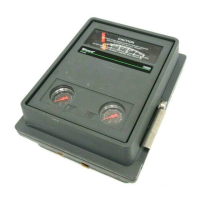
